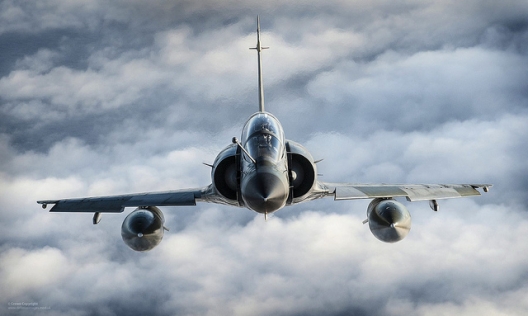 Through a series of recent sales worth billions, most recently a $12 billion deal with Saudi Arabia announced Wednesday, the Rafale has become the backbone of Paris’s realpolitik economic diplomacy aimed at sustaining its global stature and capitalizing on recent rifts in the United States’ relations with its partners.
Through a series of recent sales worth billions, most recently a $12 billion deal with Saudi Arabia announced Wednesday, the Rafale has become the backbone of Paris’s realpolitik economic diplomacy aimed at sustaining its global stature and capitalizing on recent rifts in the United States’ relations with its partners.
Gulf states are signing defense contracts with Paris to express their discontent with American policies in the wake of the Iran nuclear negotiations. The fact that the Iran talks have excluded Gulf Cooperation Council (GCC) partners while ignoring Tehran’s regional meddling has led Gulf partners to question the American commitment to their security, especially after the administration’s backtracking on a Syrian chemical weapons red line. Spotting an opportunity, France has stepped in to fill the void.
France adopted a hard line from the beginning of the Iran nuclear talks to both distinguish itself from the United States and to cultivate closer ties with the Saudis and other nervous Gulf states. It continues to push for a UN Security Council resolution enforcing a two-state solution to the Israeli-Palestinian conflict, forcing the Obama administration to seek a postponement of any vote on the issue.
Presenting an alternative to the United States on such key regional issues has helped Paris put the Rafale on the map and secure billions in regional defense contracts over the past year, raising French arms exports to the highest level in 15 years.
In Egypt, France capitalized on the contentious U.S. arms suspension that began in late 2013 to secure a Rafale deal in February, which came on the heels of the Egyptian navy’s purchase of four French corvettes last summer. Even though the United States ended the suspension earlier this year, France’s military deals are not tied to mutual security objectives and have no conditions requiring Cairo to undertake political reforms. As Egypt’s experience shows, France has emerged as an attractive, no-strings-attached alternative for states seeking to sidestep the scrutiny of U.S. conditional aid….
Hollande’s attendance at a ceremony in Doha before the summit was even more significant. France benefits from U.S.-Qatari tensions stemming from Qatar’s support for radical Islamists and Muslim Brotherhood affiliates from Libya to Syria, which has led to dangerously destabilizing competition for influence with some of its Gulf neighbors with closer U.S. ties. Seeing its chance, Paris seized the opportunity to sell Doha 24 Rafale fighter jets and other military equipment worth $7 billion….
France will not supplant the United States as an alternative security guarantor for the Middle East. Despite recent instability in its regional relationships, the United States maintains a forward military presence no other country could sustain. And for all of their bluster, Gulf partners still rely on Washington’s superior capabilities and will to act. But until relations between the United States and its Middle Eastern partners stabilize, France is happy to present an outlet for regional actors to express their dissatisfaction in exchange for lucrative defense deals.
Owen Daniels is a program assistant at the Atlantic Council’s Middle East Peace and Security Initiative. Robbie Gramer is assistant director of the Atlantic Council’s Transatlantic Security Initiative.
Image: French Mirage 2000N, Oct. 13, 2013 (photo: UK Ministry of Defense)
